Introduction
Aging is a natural part of life, but who says you can’t age gracefully? With the right skincare routine, particularly the use of anti-aging creams, you can slow down the clock and keep your skin looking radiant and youthful. But what’s the secret behind these creams? How do you choose the right one, and do they really work? Let’s dive into the world of anti-aging creams to uncover their magic!
Table of Contents
1. What Are Anti-Aging Creams?
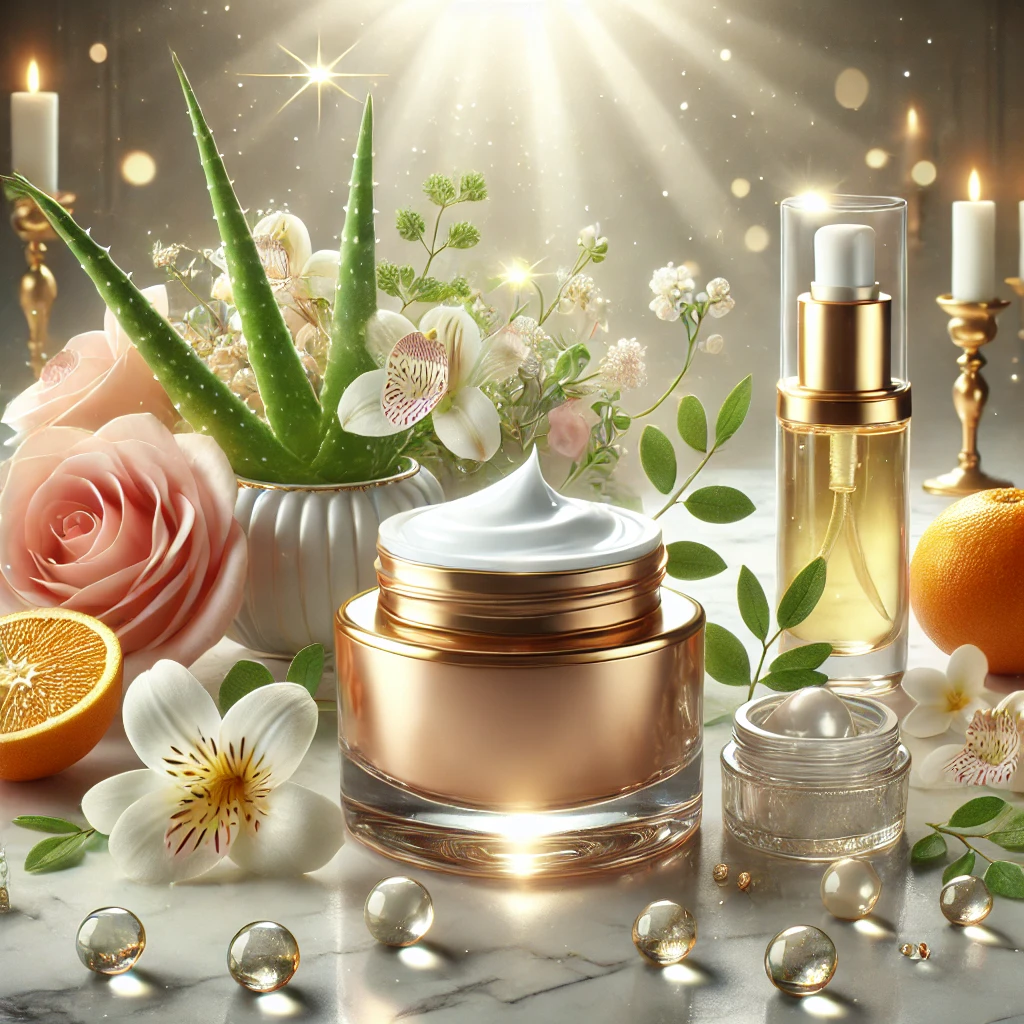
Anti-aging creams are specially formulated skincare products designed to slow down and reduce visible signs of aging, such as wrinkles, fine lines, age spots, and sagging skin. They act as a shield against the natural wear and tear that your skin endures over time. Aging is a process that happens to everyone, but anti-aging creams give you tools to combat its effects.
These creams are packed with ingredients like antioxidants, vitamins, and moisturizers, each playing a specific role in repairing and rejuvenating your skin. Think of anti-aging creams as your skin’s daily dose of health supplements, helping it fight off external damage and internal degeneration.
They are not just for those with visible wrinkles but are also beneficial for younger individuals looking to maintain their youthful appearance. Prevention is as important as correction when it comes to skincare.
2. How Do Anti-Aging Creams Work?
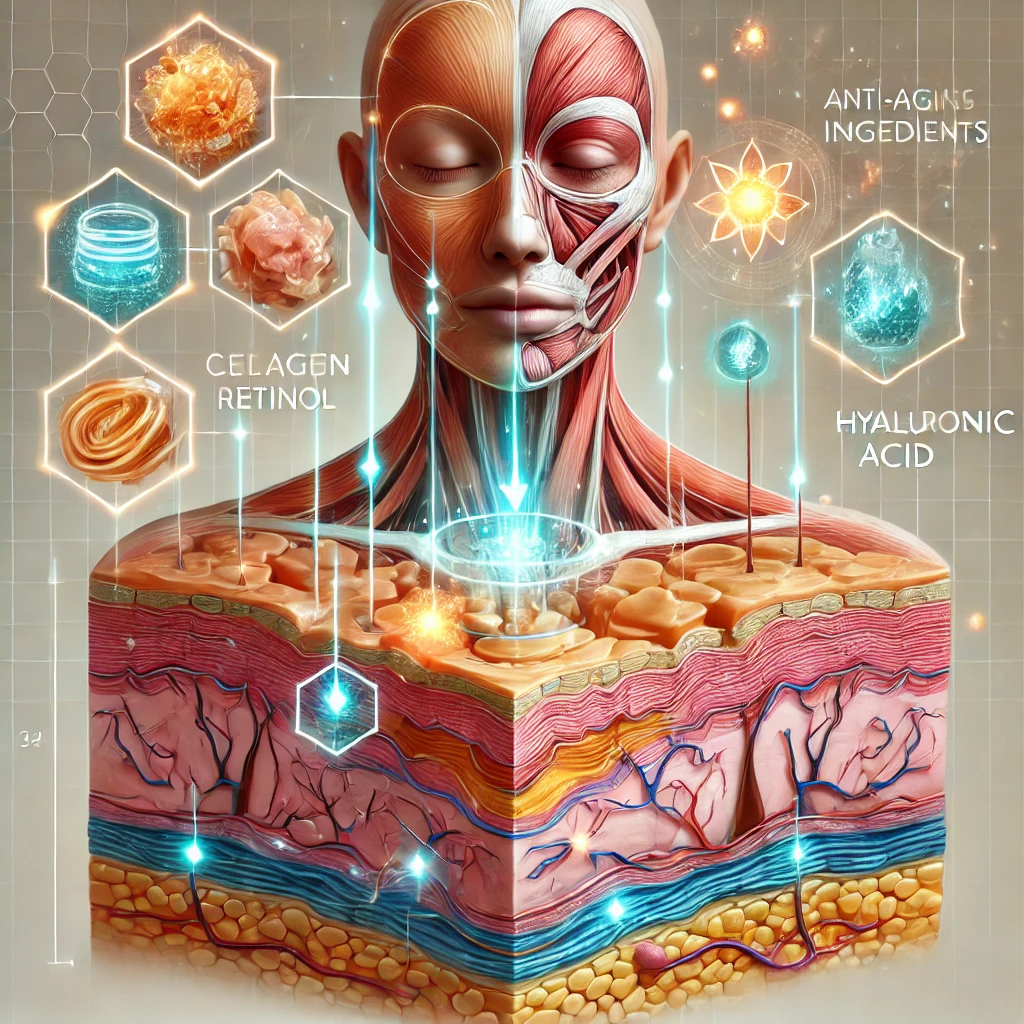
Ever noticed how a plant perks up when watered? Anti-aging creams do something similar for your skin. They work by hydrating, nourishing, and protecting your skin layers to restore vitality and smoothness.
The science behind these creams lies in their active ingredients, which penetrate deep into the skin. Here’s how they work:
- Stimulating Collagen Production: Collagen is the protein that keeps your skin firm and elastic. With age, its production slows down. Anti-aging creams often contain ingredients like peptides and retinol that stimulate collagen synthesis.
- Hydration and Moisture Retention: As your skin ages, it loses its natural ability to retain moisture. Ingredients like hyaluronic acid work like a sponge, drawing water into the skin to keep it plump and hydrated.
- Fighting Free Radicals: Environmental factors like UV rays and pollution create free radicals that damage your skin cells. Antioxidants such as Vitamin C and E in anti-aging creams neutralize these harmful molecules, preventing further aging.
- Repairing Damage: Ingredients like niacinamide and glycolic acid target existing damage, such as uneven skin tone, dullness, and fine lines, promoting skin renewal.
In short, these creams are your skin’s multitasking warriors, designed to repair, protect, and enhance its natural beauty.
3. Key Ingredients to Look For
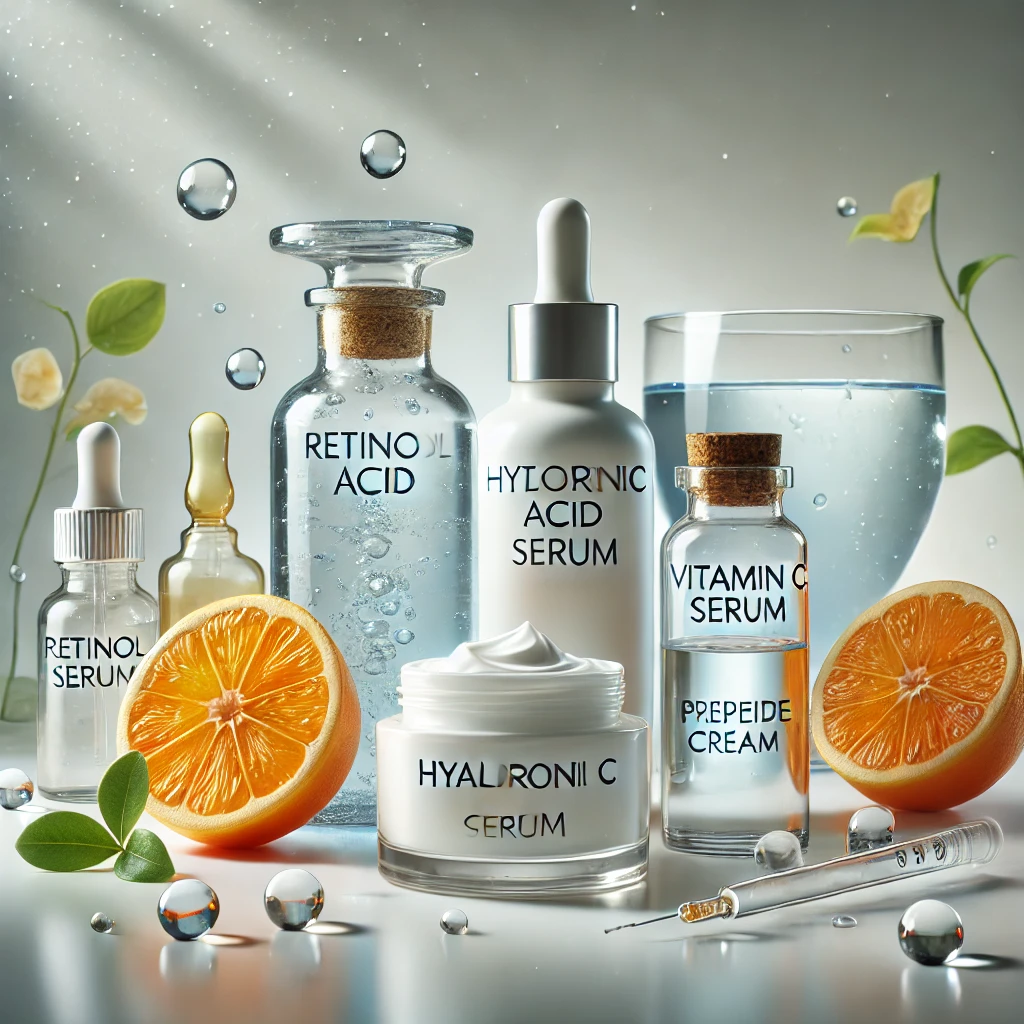
The effectiveness of an anti-aging cream boils down to its ingredients. Here’s a breakdown of the heavy hitters that should be on your radar:
- Retinol (Vitamin A): Known as the gold standard in anti-aging, retinol accelerates cell turnover, smoothing wrinkles and improving skin texture.
- Hyaluronic Acid: This hydration hero attracts water to the skin, leaving it soft and supple. It’s like giving your skin a long, cool drink of water.
- Vitamin C: A powerful antioxidant, it brightens your complexion, evens out skin tone, and protects against environmental damage.
- Peptides: These short chains of amino acids signal your skin to produce more collagen, making your skin firmer and reducing fine lines.
- Niacinamide (Vitamin B3): A multitasking ingredient that soothes inflammation, strengthens the skin barrier, and improves elasticity.
- Alpha Hydroxy Acids (AHAs): These exfoliants slough away dead skin cells, revealing brighter, smoother skin underneath.
When shopping for an anti-aging cream, check the label for these ingredients to ensure you’re getting a formula that will truly benefit your skin.
4. Benefits of Anti-Aging Creams
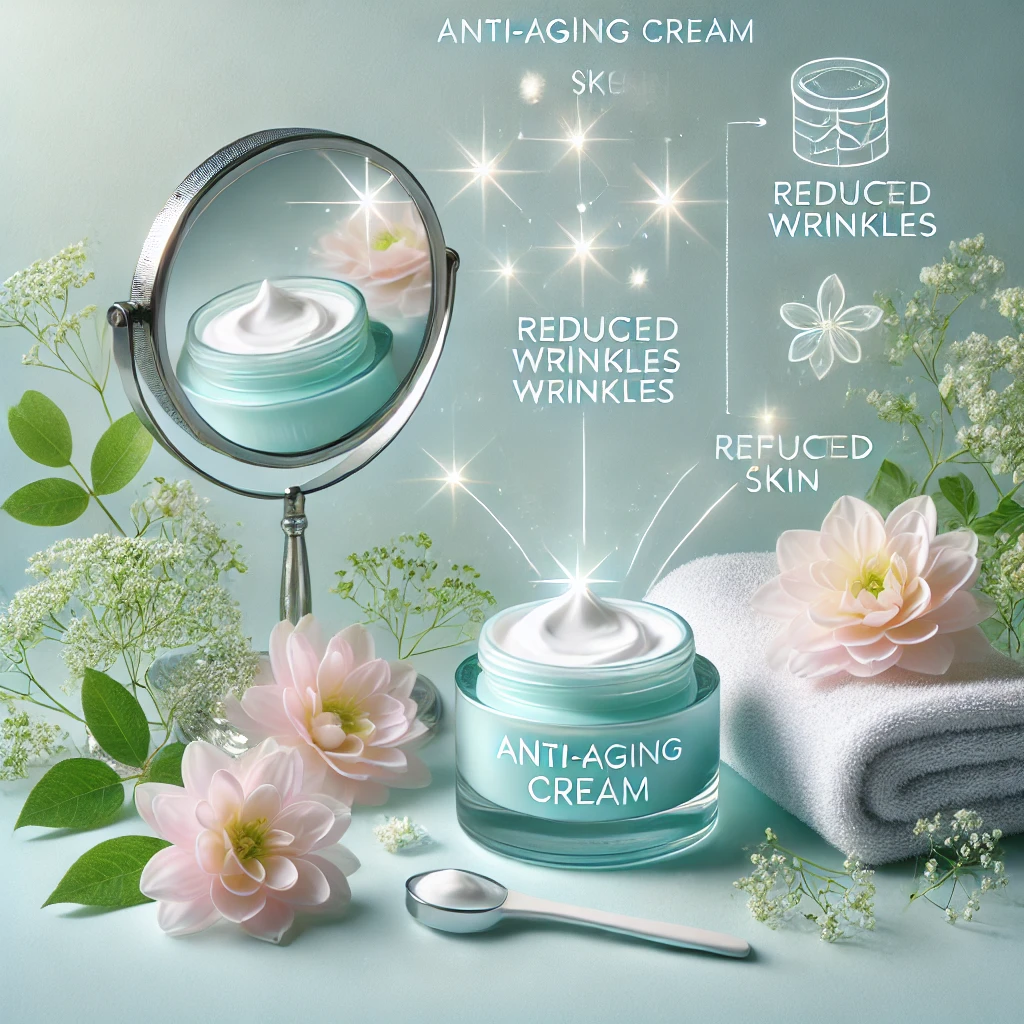
Using an anti-aging cream isn’t just about looking younger—it’s about improving the overall health of your skin. Here are some benefits you can expect:
- Reduction of Wrinkles and Fine Lines: Anti-aging creams smooth out the surface of your skin, minimizing the depth and visibility of wrinkles.
- Boosted Skin Elasticity: Ingredients like peptides and retinol help to firm and lift sagging skin, giving you a more youthful appearance.
- Improved Skin Tone: Many anti-aging creams contain brightening agents that fade dark spots and pigmentation, evening out your complexion.
- Deep Hydration: Dehydrated skin looks older than it is. Anti-aging creams with hyaluronic acid and ceramides lock in moisture, giving your skin a plump, healthy look.
- Protection Against Environmental Damage: Antioxidants like Vitamin C and green tea extract defend your skin from harmful UV rays and pollutants, preventing premature aging.
Think of anti-aging creams as a skincare toolbox that not only addresses current concerns but also prevents future ones, helping you maintain healthy, radiant skin over time.
5. Types of Anti-Aging Creams
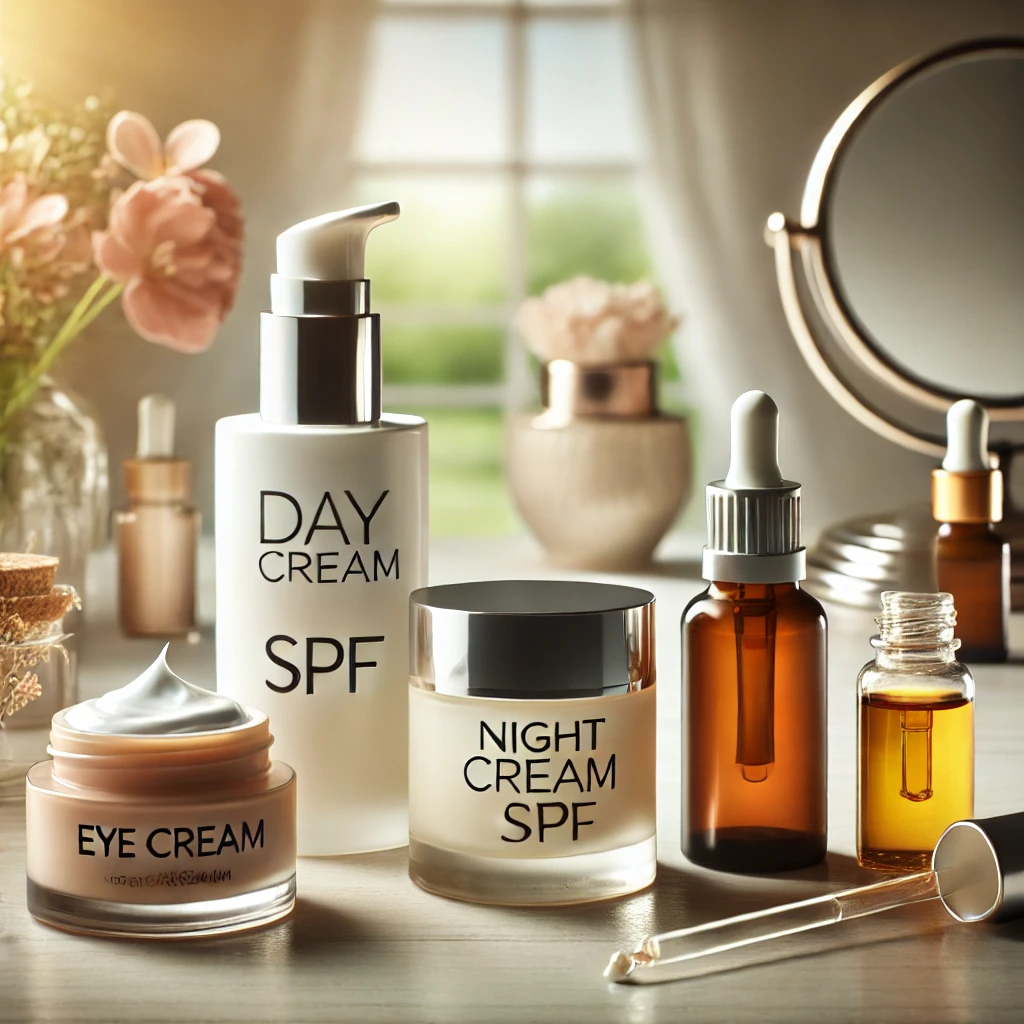
Anti-aging creams come in different formulations to cater to diverse skin needs and lifestyles. Here’s a closer look at the main types:
- Day Creams:
These are lightweight and often include SPF to protect your skin from harmful UV rays. They focus on hydration and defense against environmental stressors, making them perfect for daytime use. - Night Creams:
Richer and more concentrated, night creams work while you sleep to repair and rejuvenate your skin. They typically contain ingredients like retinol or peptides to target deeper signs of aging. - Eye Creams:
The skin around your eyes is delicate and prone to early signs of aging. Eye creams are specially formulated to combat puffiness, dark circles, and fine lines. - Serums:
These are power-packed solutions with a higher concentration of active ingredients. They penetrate deeper into the skin and often complement the effects of your regular creams.
Each type serves a specific purpose, and combining them strategically can enhance your anti-aging regimen.
6. How to Choose the Right Cream
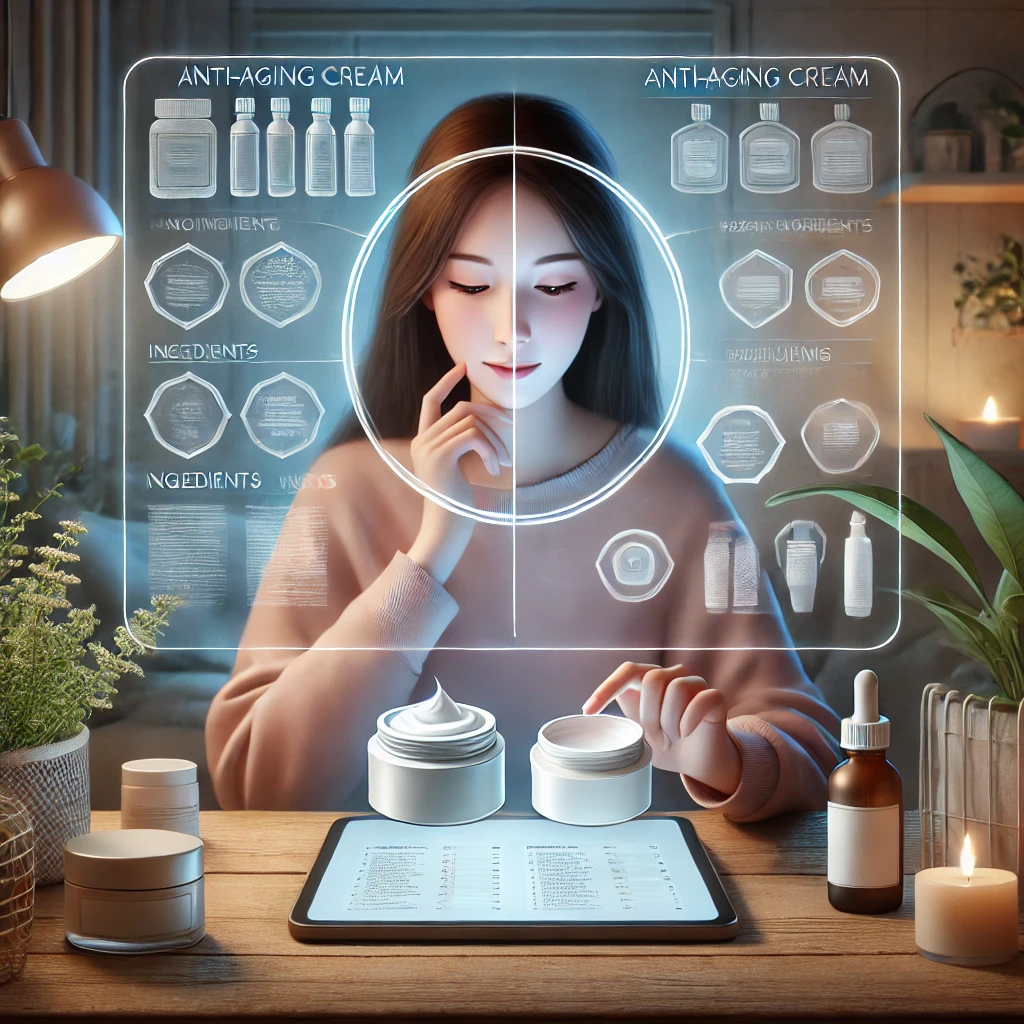
Finding the perfect anti-aging cream can feel like looking for a needle in a haystack. Here’s how to simplify the process:
- Identify Your Skin Type:
Is your skin oily, dry, sensitive, or a mix? Choose a product that matches your skin type to avoid irritation or breakouts. - Prioritize Ingredients:
Look for creams with proven ingredients like retinol, peptides, or hyaluronic acid. Avoid products with excessive fragrances or harsh chemicals, especially if you have sensitive skin. - Consider Your Age:
In your 20s, focus on prevention with lightweight, antioxidant-rich formulas. In your 30s and beyond, prioritize hydration, collagen-boosting ingredients, and targeted repair. - Think About Your Lifestyle:
Do you need a quick, fuss-free product, or are you ready to commit to a detailed skincare routine? Pick products that align with your time and effort level. - Read Reviews:
Customer experiences can give you insights into a product’s real-world effectiveness.
Selecting the right cream is about more than just following trends—it’s about listening to your skin’s unique needs.
7. Application Tips for Best Results
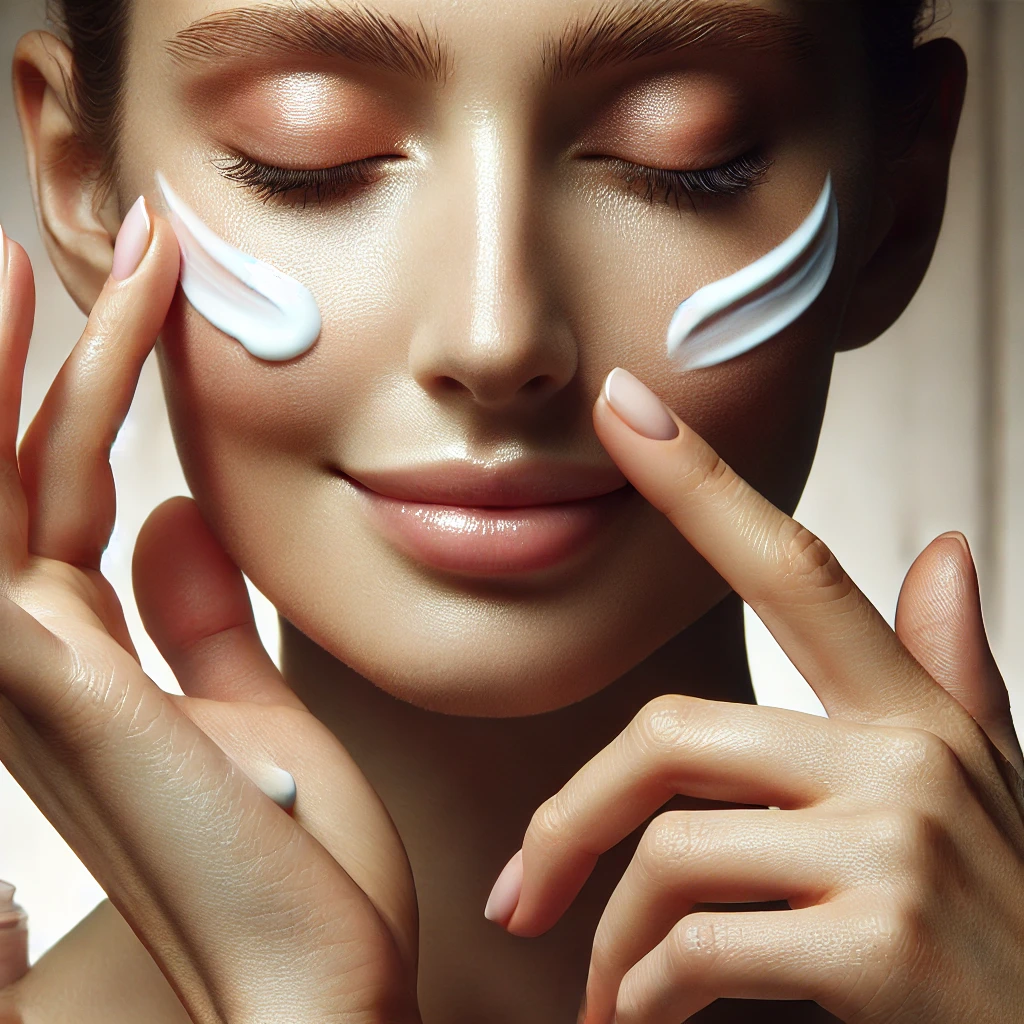
Applying an anti-aging cream may seem straightforward, but there’s a method to maximize its benefits. Here’s a step-by-step guide:
- Start with a Clean Slate:
Wash your face with a gentle cleanser to remove dirt, oil, and makeup. Pat your skin dry with a soft towel. - Use a Small Amount:
A little goes a long way. Use a pea-sized amount of cream to avoid overloading your skin. - Apply Gently:
Use your fingertips to dab the cream onto your face. Spread it evenly using upward, circular motions to promote absorption and avoid pulling on the skin. - Don’t Forget the Neck:
Your neck shows signs of aging just as much as your face. Extend the application to this area for a consistent look. - Be Consistent:
Apply your cream daily—morning, evening, or both, depending on the product’s instructions. - Combine with Sunscreen:
If your cream doesn’t contain SPF, always layer sunscreen over it during the day to protect your skin from UV damage.
Treat your skincare routine like a ritual, not a chore, and your skin will reward you with long-lasting radiance.
8. Common Myths About Anti-Aging Creams
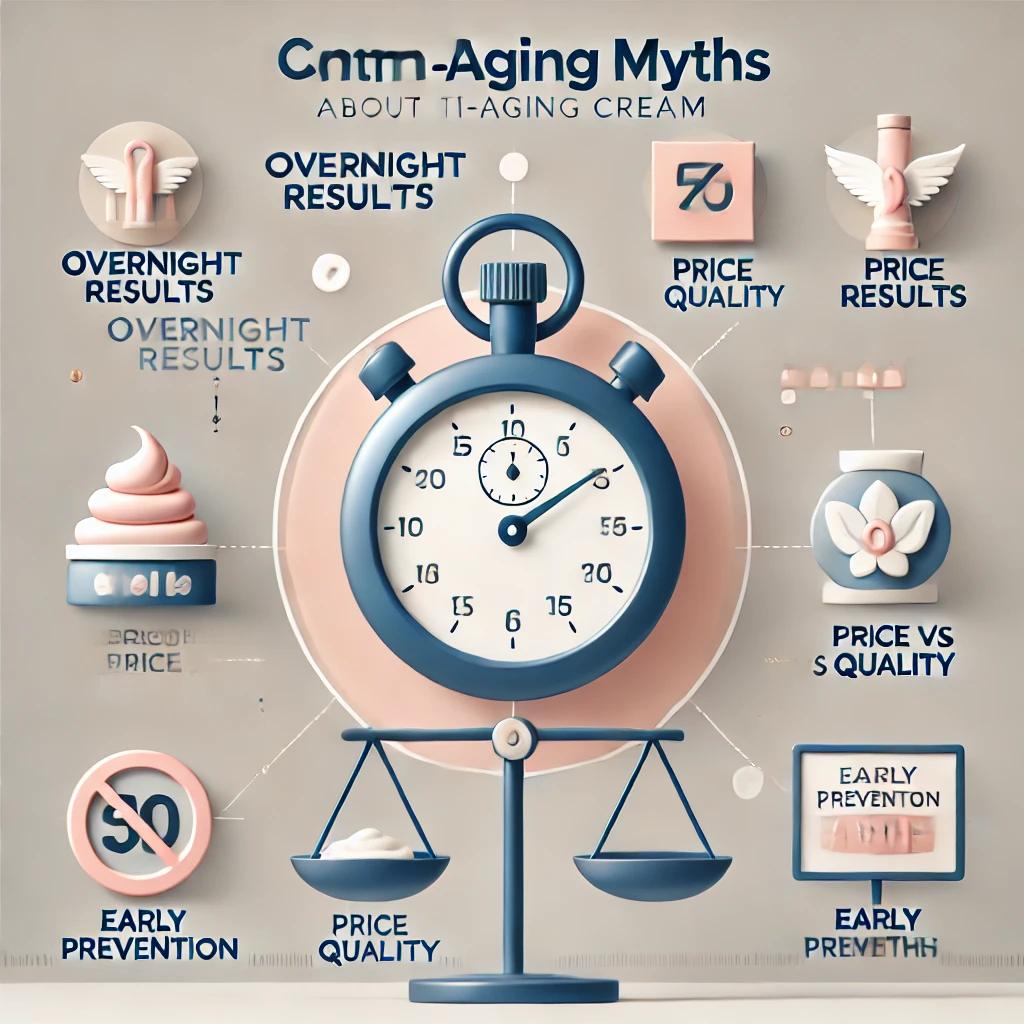
Misinformation about anti-aging creams can lead to unrealistic expectations or missed opportunities. Let’s clear up some common myths:
- “Anti-aging creams are only for older people.”
False! Starting early can help prevent visible signs of aging before they appear. - “You need to spend a fortune for results.”
Not true. Many affordable brands deliver excellent results. Focus on the ingredients, not the price tag. - “They work like magic overnight.”
Patience is key. Visible results can take weeks or even months of consistent use. - “Natural products are always better.”
While natural products are great for some, scientifically backed active ingredients like retinol often outperform natural alternatives in terms of effectiveness.
Understanding these myths ensures you approach anti-aging products with realistic expectations and informed choices.
9. DIY Anti-Aging Alternatives

If you’re a fan of natural remedies, you can complement your skincare routine with DIY solutions. While they may not replace a high-quality anti-aging cream, they can enhance your efforts. Here are a few easy options:
- Aloe Vera Gel:
Packed with vitamins and antioxidants, aloe vera helps hydrate and soothe the skin. - Coconut Oil:
Its moisturizing properties can reduce the appearance of fine lines while giving your skin a natural glow. - Green Tea Masks:
Green tea is rich in antioxidants, which can help combat free radicals and reduce inflammation. - Honey and Lemon Mixture:
Honey’s antibacterial properties combined with lemon’s brightening effects can make your skin look fresh and radiant.
Remember, consistency with these remedies is as important as using commercial products. Natural solutions take time and work best as a supplement to your main skincare routine.
Would you like me to continue with the remaining sections or provide more in-depth details on any of these topics?
10. The Science Behind Anti-Aging
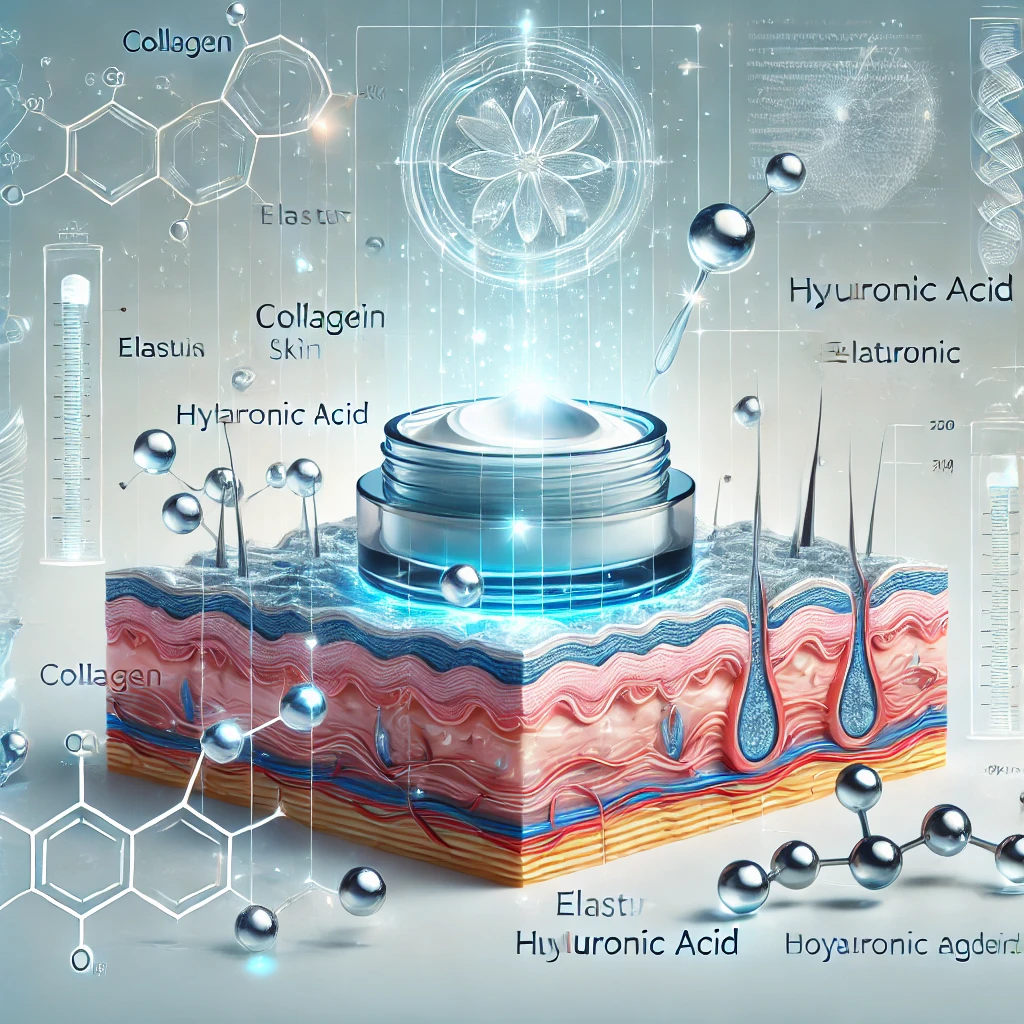
The aging process is a complex combination of biological and environmental factors. Anti-aging creams are rooted in dermatological science, targeting the underlying causes of skin aging. Let’s break down the science:
- Loss of Collagen and Elastin:
Collagen and elastin are the building blocks of youthful skin. They provide firmness and elasticity but naturally decrease with age. Anti-aging creams with retinol and peptides stimulate collagen production, restoring firmness. - Free Radical Damage:
Exposure to UV rays, pollution, and lifestyle factors creates free radicals, unstable molecules that damage skin cells. Antioxidants like Vitamin C neutralize these free radicals, preventing further aging. - Dehydration:
Aging skin struggles to retain moisture, leading to dryness and fine lines. Hyaluronic acid, a common ingredient, attracts and holds water molecules, deeply hydrating the skin. - Slowed Cell Turnover:
As we age, the rate at which skin cells regenerate slows down, causing a dull, uneven complexion. Ingredients like alpha hydroxy acids (AHAs) and retinol speed up cell turnover, revealing fresher, healthier skin.
Anti-aging creams don’t reverse time, but they work at the molecular level to address aging’s root causes, resulting in visible improvements.
11. Popular Brands and Their Features
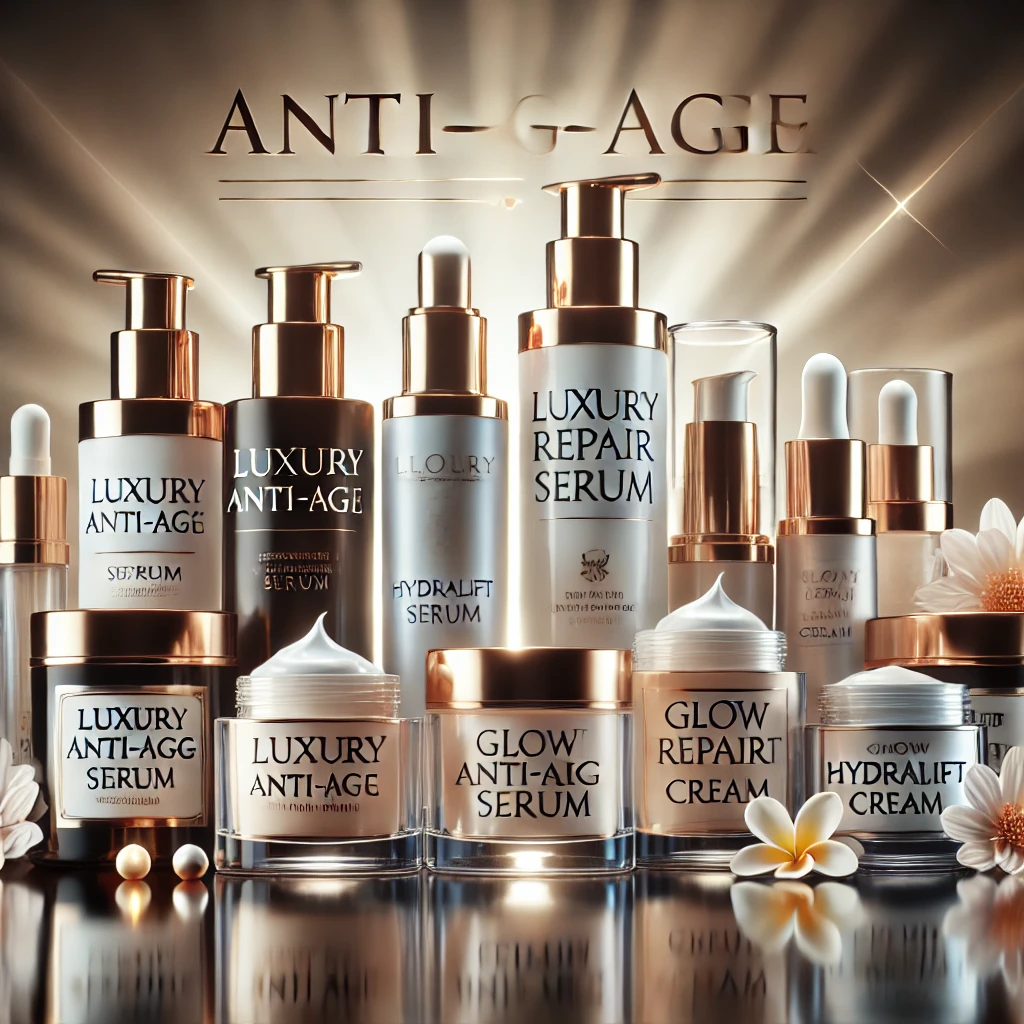
Choosing the right anti-aging cream can be overwhelming with so many brands in the market. Here’s a look at some of the most trusted options:
- Olay Regenerist Micro-Sculpting Cream:
Known for its affordability and effectiveness, this cream contains hyaluronic acid and peptides to plump and firm the skin. - Estée Lauder Advanced Night Repair:
A high-end serum packed with antioxidants and hyaluronic acid, it works overnight to repair and hydrate. - Neutrogena Rapid Wrinkle Repair:
This budget-friendly option features retinol and hyaluronic acid, targeting wrinkles and fine lines effectively. - L’Oréal Paris Revitalift Anti-Wrinkle + Firming Cream:
Infused with pro-retinol and centella asiatica, it firms sagging skin while smoothing out wrinkles. - Drunk Elephant Protini Polypeptide Cream:
This luxurious cream is enriched with peptides and amino acids, delivering intense hydration and strengthening the skin barrier.
Each of these brands caters to different budgets and skin needs, giving you options to find the perfect match for your anti-aging goals.
12. How Lifestyle Impacts Aging

Your lifestyle choices play a significant role in how your skin ages. While anti-aging creams can work wonders, their effects are amplified when paired with a healthy lifestyle. Here’s how key factors impact your skin:
- Diet:
A diet rich in antioxidants, healthy fats, and vitamins promotes healthy skin. Foods like berries, nuts, and leafy greens fight oxidative stress, while omega-3 fatty acids keep skin hydrated and supple. - Sleep:
Lack of sleep disrupts your skin’s natural repair process, leading to dullness and premature aging. Aim for 7-9 hours of quality sleep each night. - Stress:
Chronic stress increases cortisol levels, which can break down collagen and cause inflammation. Practices like yoga or meditation can help manage stress. - Sun Exposure:
UV radiation is the leading cause of premature aging. Wearing sunscreen daily, even indoors, is essential to protect your skin. - Hydration:
Drinking plenty of water keeps your skin hydrated from within, complementing the effects of anti-aging creams.
By combining a healthy lifestyle with the right skincare routine, you can significantly slow down the aging process and maintain a youthful appearance.
13. Skincare Routine: The Bigger Picture
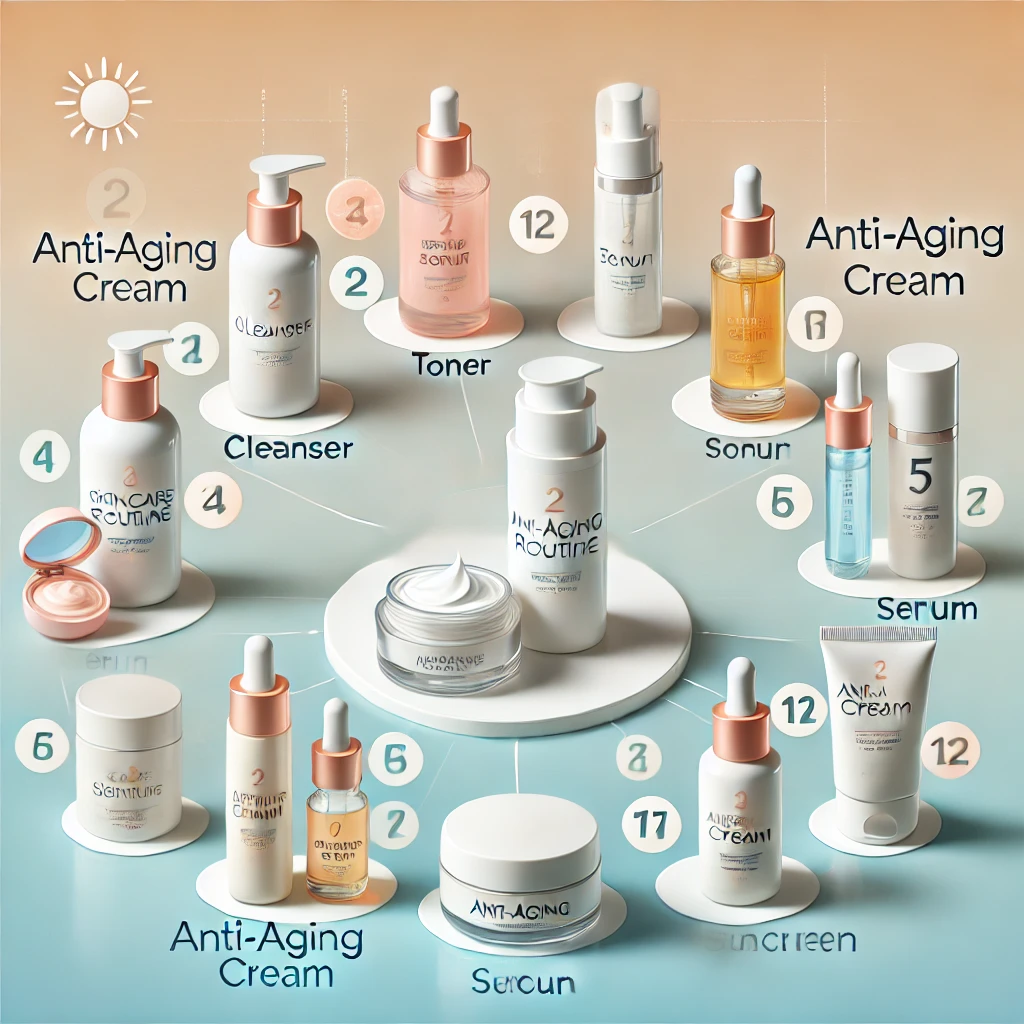
Anti-aging creams are a powerful tool, but they work best when integrated into a complete skincare routine. Here’s an ideal daily routine to maximize results:
- Morning:
- Cleanse: Start with a gentle cleanser to remove impurities.
- Tone: Use a toner to balance your skin’s pH and prep it for better absorption of products.
- Serum: Apply a Vitamin C serum for antioxidant protection and brightening.
- Anti-Aging Cream: Use a lightweight formula with SPF to hydrate and protect.
- Sunscreen: Finish with a broad-spectrum sunscreen for UV protection.
- Evening:
- Cleanse: Double-cleanse if you wore makeup or sunscreen during the day.
- Exfoliate (2-3 times per week): Use an AHA or BHA exfoliant to remove dead skin cells.
- Serum: Apply a retinol-based serum to target wrinkles and boost cell turnover.
- Anti-Aging Night Cream: Choose a rich cream with repairing and hydrating properties.
Consistency is key to achieving and maintaining youthful, glowing skin.
14. Signs It’s Time to Switch Products
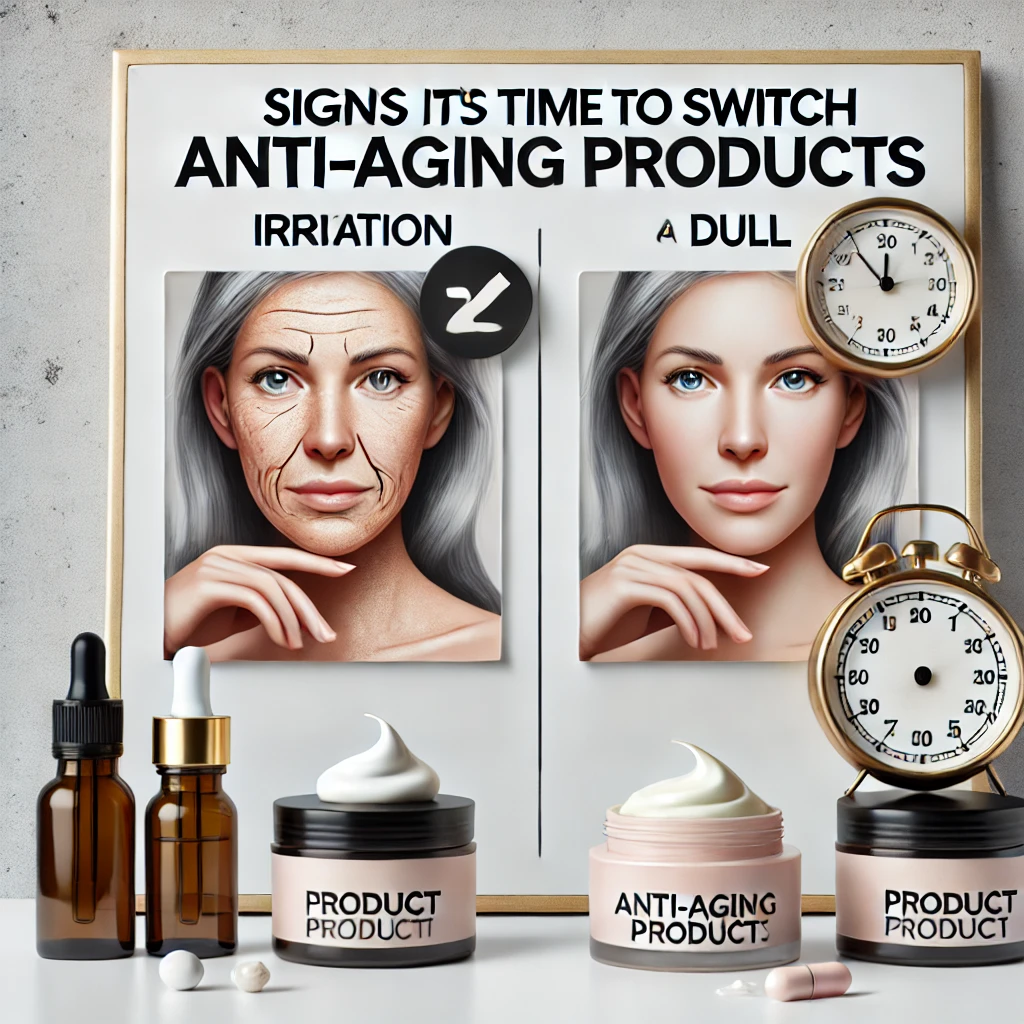
Sometimes, even the best anti-aging cream stops delivering results. Here’s when you know it’s time to make a change:
- Lack of Improvement:
If you’ve been using a product for months without noticeable changes, it might not be effective for your skin. - Irritation or Breakouts:
Redness, peeling, or increased sensitivity are signs the formula may not suit your skin type. - Skin Changes:
As your skin ages or seasons change, your needs may evolve. For example, you may need a richer formula in winter or lighter options in summer. - Expiration Date:
Using expired products can cause irritation or reduced effectiveness. Always check the date on your skincare products.
Switching products is a normal part of skincare. Listen to your skin and adapt as needed.
15. The Future of Anti-Aging Skincare
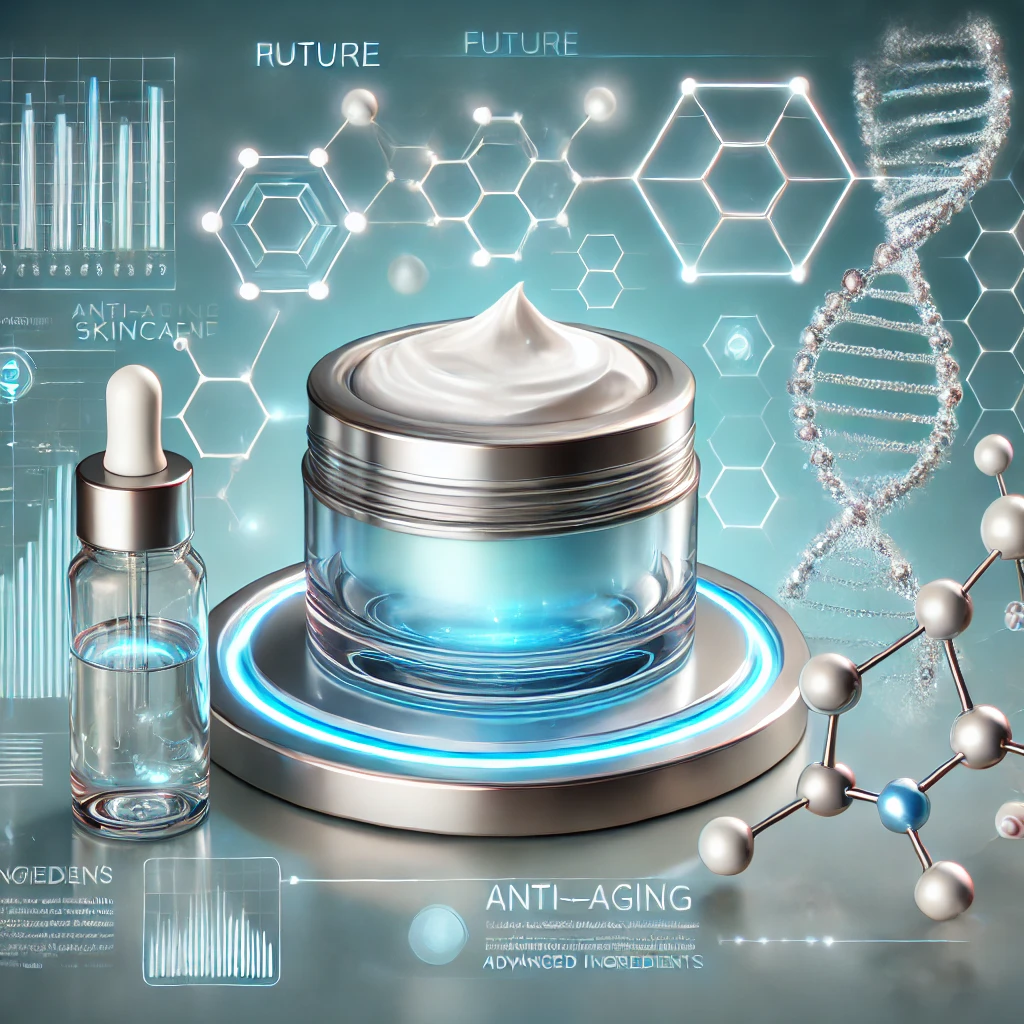
The beauty industry is constantly evolving, and anti-aging skincare is no exception. Here are some trends shaping the future:
- Personalized Skincare:
Advances in AI and genetic testing are leading to customized skincare solutions tailored to your unique needs. - Sustainable Packaging:
Brands are prioritizing eco-friendly packaging to reduce their environmental footprint. - Stem Cell Technology:
Skincare products are beginning to incorporate stem cells to repair and regenerate skin at a deeper level. - Probiotic Skincare:
Products that promote a healthy skin microbiome are gaining popularity for their ability to enhance natural defense mechanisms. - Clean Beauty:
The demand for non-toxic, ethically sourced ingredients is driving innovation in anti-aging formulations.
The future holds exciting possibilities for skincare, promising even more effective and sustainable solutions for combating aging.
Conclusion
Anti-aging creams are more than just beauty products—they’re tools that help you embrace aging while maintaining confidence. By understanding how they work and choosing the right one for your needs, you can unlock the secret to radiant, youthful skin.
FAQs
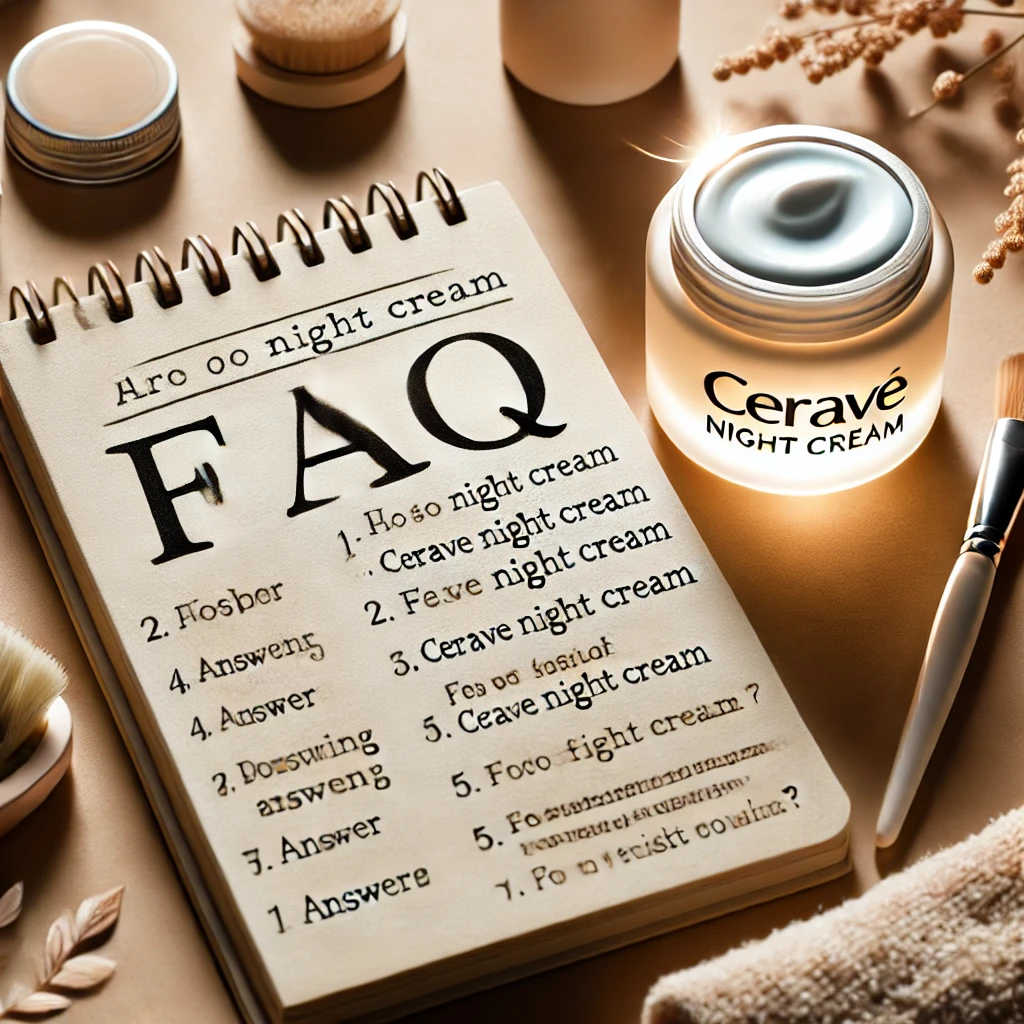
1. Can anti-aging creams really reverse wrinkles?
While they can reduce the appearance of wrinkles, complete reversal is unlikely. Consistent use leads to noticeable improvements.
2. At what age should I start using anti-aging creams?
It’s never too early to start! Many dermatologists recommend beginning in your late 20s or early 30s.
3. Are natural anti-aging creams effective?
Natural creams can be effective but may take longer to show results compared to those with active ingredients.
4. Can I use anti-aging cream on sensitive skin?
Yes, but look for products labeled as suitable for sensitive skin and free from harsh chemicals.
5. Do anti-aging creams work for men too?
Absolutely! Skin aging affects everyone, and these creams are effective regardless of gender.
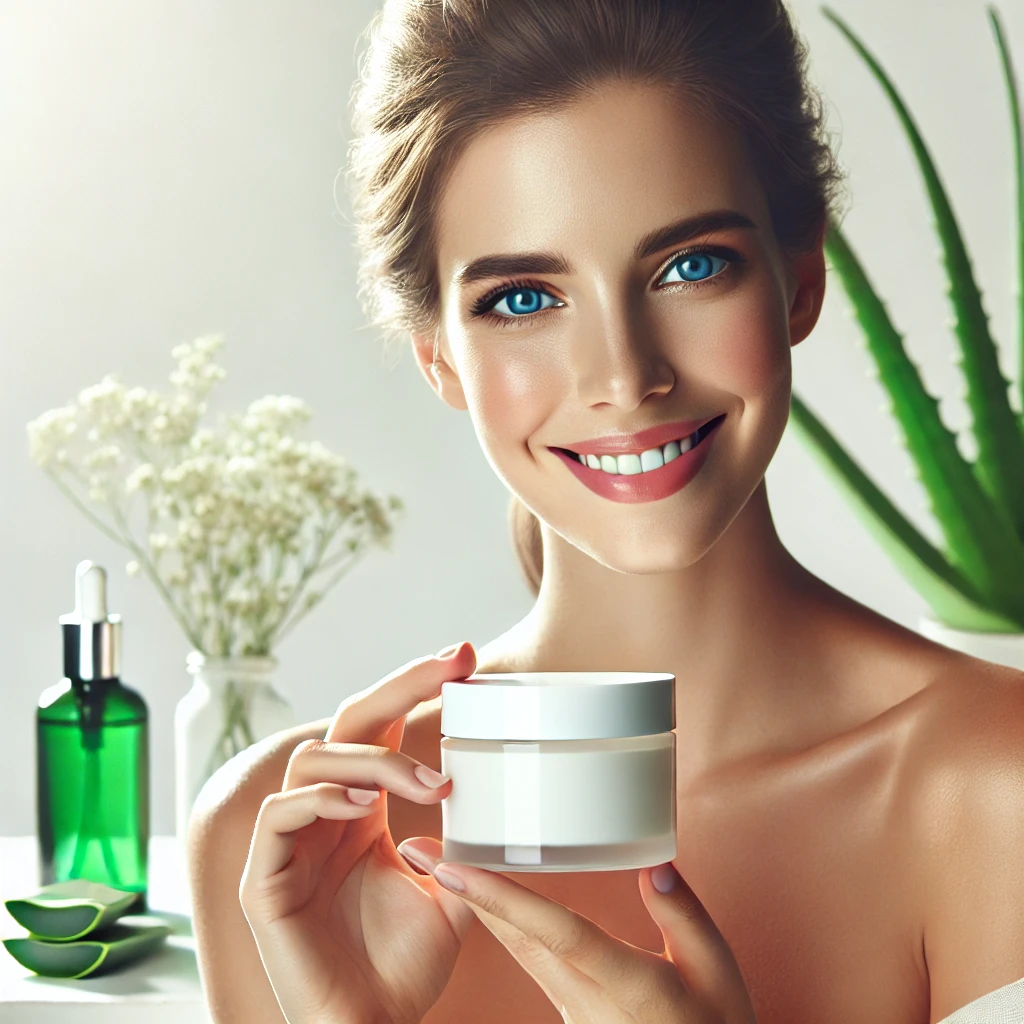

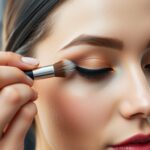
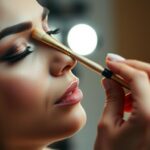



5 thoughts on “The Ultimate Guide to Anti-Aging Creams: Unlocking the Secret to Youthful Skin”